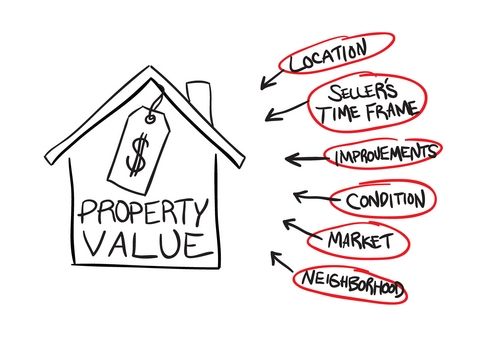 It would be great if we could take exactly what our property valuer says as the truth and not give it another moment’s thought, but let me share a story that will show you exactly why valuations aren’t often reliable.
It would be great if we could take exactly what our property valuer says as the truth and not give it another moment’s thought, but let me share a story that will show you exactly why valuations aren’t often reliable.
A client recently purchased a property in an area I considered a sound investment. In fact, I was so confident that I bought a property in the same area as well.
Strangely, the valuations for the two properties both fell short of the purchase price.
To check the logic, I obtained six other valuations of similar properties with similar values by licensed valuers.
You would think that the valuations would be similar, but they weren’t even close.
One came in at $21,00 more than the purchase price and another came in a staggering $58,000 short of the purchase price.
These valuations were comparing apples with apples – same number of bedrooms and bathrooms, same sizes, same locations- they were all requested for the same purpose — “for mortgage security”. The two high and low valuations above came from two valuers who worked for the same prominent firm; in fact, they both worked in the same office!
So what explains the wild discrepancy in valuations?
There are a few reasons:
1. Valuations are traditionally “backward” looking: they look at historic comparable sales personally chosen by the valuer. The valuation rarely takes into account future demand or supply.
2. Lenders can influence the valuation; they provide the valuation criteria, which can affect the valuation.
3. Valuers use personal judgement, so an objective process becomes somewhat subjective and explains why having no discrepancy is impossible nearly.
4. Valuers can be held liable in case of mortgage repossession. This means that they tend to be conservative in nature.. err on the side of caution (for their own sake).
How this affects you?
Property valuations are important but serve a certain purpose… and this is usually NOT to give YOU an indication of the true market value. They are there to give a conservative opinion of a safe value to be used for the calculation of exposure from the lender to the particular property.
If you’re looking to acquire a property, your homework is probably just as valuable so consider areas with:
- Strong, solid demand and supply fundamentals
- Good employment prospects nearby
- Good rental yield
Check these three boxes and you’re on the way to acquiring a solid property portfolio.
